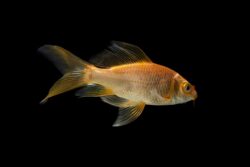KS1 Age: This is What Parents and Educators Need to Know

What is the KS1 Age?
Key Stage 1 (KS1) defines the beginning phase of primary school age in the United Kingdom and a few other countries. It usually enrols children between the ages of five and seven years. For parents and teachers, it is essential to comprehend KS1 because it is the foundation of child education and promotes the development of specific abilities that will be required later on.
KS1 Age Range
In the UK, KS1 begins as soon as kids reach Year 1, which is roughly when they are 5 years old, and it goes on until the completion of Year 2, when most students are 7 years old. The midway primary, however, is more or less the same worldwide, although some slight difference exists in the actual numbers.
The Purpose of Key Stage 1
KS1 will establish a substantial grip on literacy, numeracy, and science, the core subjects. Learners at this level get acquainted with fundamental knowledge, which they will build on further along the education ladder. There is also an emphasis that KS1 should instil an appreciation for and desire to learn, as well as imagination and problem-solving.
Subjects Covered in KS1
KS1 is an educational level that encompasses numerous subjects, which can be divided into two categories:
Core Subjects: Informal education approaches mainly focus on English, mathematics, and science as the core subjects, solving a child’s academic development on a full scale.
Non-core Subjects: This includes, but is not limited to, subjects like art, music, physical education (PE), and history, which help develop the entire child and his or her skills.
English in KS1
One of the aims of KS1 is to improve a child’s literacy level. In this stage of education, children have to acquire the age’s speech, writing, and reading techniques. The system encourages the use of letter sounds and helps to understand why they are grouped to form a word. Also, children are taught how to tell stories, read and understand what they read, and write down their thoughts.
Mathematics in KS1
Math is the last core subject a child is exposed to during the KS1 stage. The children learn straightforward number features like counting, addition, and subtraction shapes. This stage prepares them for more complicated mathematics. Children in their early years must begin embracing the understanding of numbers in preparation for their future education.
Science in KS1
The science curriculum in KS1 focuses on hands-on learning, while science comes second. Kids are introduced to biology as they learn how plants, animals, and human life exist in the reality around them. Activities such as drilling holes in trays, washing vegetation, and planting different seasons, among others, help foster the continued development of children’s centres of estimation.
Creative Subjects in KS1
The emphasis of KS1 went to developing preschool-age children’s abilities and potential and the significance of subjects such as art, music, and drama. Children are also exposed to the widening of their innovation-oriented with their self-ideas in many activities. For instance, children learn how to draw and paint, play musical instruments and act in front of other children, which enhances their creative ability and self-esteem.
Physical Education in KS1
The big eyes open and often spill in a large amount of realisation in physical development, which starts at KS1, alongside cognitive development. Physical education is intended to teach children a variety of motor skills, improve coordination, and improve general physical fitness. Running, jumping, dancing, and team games are other forms of activities that make children active and also teach them to work as a team.
Social and Emotional Learning in KS1
Apart from the formal learning that children undergo at KS1, social and emotional learning are among the main attributes found in this stage. This stage encourages children to appreciate the value of sharing and helps them discover the importance of others without seeking attention. Emotional intelligence is also developed, where they learn how to control their emotions and interact with other children.
Evaluation in Key Stage One
Evaluation in Key Stage One age is carried out through teacher and national assessments, the so-called SATs. The children’s achievements must be recorded and reported periodically to the parents during the year. The SATs take place at some point near the end of Year 2 and evaluate children’s reading, writing, and mathematics. However, there is more focus on personal development and comprehension than on scores.
What Must be Done to Help Parents in KS1
Letting your child go through KS1 on their own may be very hard for them, and thus, being supportive goes a long way in helping them. Here are some key things that could be helpful to parents:
Transition from KS1 to KS2
The move from KS1 to Key Stage 2 (KS2) may be a significant change for children as they will encounter new challenges and responsibilities relative to K.S 1. Parents are in an excellent position to assist in this process by preparing their children emotionally and academically. Encourage them to talk about their feelings and help them rehearse what they will do in KS2.
Challenges Faced by KS1 Students
Children in KS1 may encounter challenges such as adapting to the formal school setting, dealing with new ideas, or transitioning into being sociable. It is vital for adults, particularly parents and teachers, to spot these issues at the early stages and intervene. Responses include individualised learning, encouragement, kind words, and two-way communication.
KS1 in Different Countries
Although KS1 is commonly used in the UK, countries differ in terms of specific terminology and age grades for further and early education. In the United States, for instance, glass level K 1 would be equal to KS1. In other countries, these stages focus on honing children’s pre-literacy, precocity, and socialisation.
FAQs
What is the starting and ending age for KS1?
KS1 is usually known to begin at the age of five and go on to the age of seven.
What does KS1 aim to achieve?
KS1 aims to establish basic skills in literacy, numeracy, and personal development so that the children are ready for more advanced learning.
Are there any tests in KS1 that are of a national stature?
Yes, at the end of Year 2, children take the SATs, which are tests that assess progress rather than one-off graded assessments.
How can I ensure that my child achieves good results in KS1?
You can help by promoting learning activities at home, such as reading and mathematics, and paying attention to feelings.
Is KS1 similar or different in other countries?
Yes, other countries have similar stages, but they call them different names and concentrate on the same principles of early years learning.



